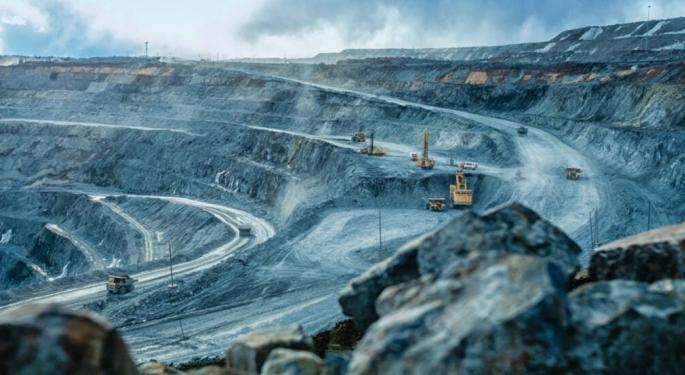Toronto Risks Its Mining Hub Status As Bureaucracy And Geopolitics Take Toll
Toronto's status as a leading global mining hub is at risk as exploration firms relocate and investors look for friendlier jurisdictions owing to an increasingly complicated geopolitical landscape. Once a go-to destination for mining finance, Canada's largest city is seeing a steady decline in mining listings.
"The industry that has fueled most of the great Canadian minerals discoveries over the past 50 years is but a skeleton of itself," Pierre Lassonde, co-founder of Franco-Nevada, one of the leading gold-focused royalty companies, said per Bloomberg.
Toronto's TSX Venture Exchange has been declining since 2010, as the number of mining sector listings dropped from 1,531 to just 1,097, according to the latest data from the exchange owner. Industry consolidation, foreign investment restrictions, and a shift in investor priorities drove this trend.
Capital raised within the sector has stagnated as well. In 2014, 2015, and 2016, equity capital raised ranged from $5.3 billion to $6 billion annually. In the past three years, it reached $4-6 billion in the first 2 quarters, seemingly on par with past performance. However, when adjusted for inflation, the reality is that the market has shrunk.
The parallels with London are evident. Once a dominant global venue for mining listings, London saw the market capitalization of mining stocks decline from $322 billion in 2018 to $272 billion in 2024 as part of its broader decline.
Bottlenecks in administration and supply chains have further exacerbated Toronto's problem. Canada's sluggish permitting process has been widely criticized, with mining executives and government officials acknowledging that the country is falling behind.
"Compared to the rate Canada opened mines in the past 15 years, we need to move forward more than five times as fast to meet the EV battery factory demand," stated a presentation by Natural Resources Canada.
The Canadian government has tightened foreign investment rules, particularly targeting Chinese investors.
The Trudeau government's decision in 2022 to force Chinese firms to divest from Canadian lithium explorers was a significant turning point. While protecting national interests, this crackdown has also discouraged capital inflows, pushing some companies to seek funding elsewhere.
Mathieu Bos, CEO of Falcon Energy Materials, moved his company's headquarters to Abu Dhabi after a deal with a Chinese investor fell through due to government scrutiny. "Abu Dhabi is the new London or the new New York, the new international money or financing platform," he said.
Read Next:
Photo via Shutterstock
© 2025 Benzinga.com. Benzinga does not provide investment advice. All rights reserved.
Posted-In: Government News Regulations Commodities Global Top Stories Markets Media



